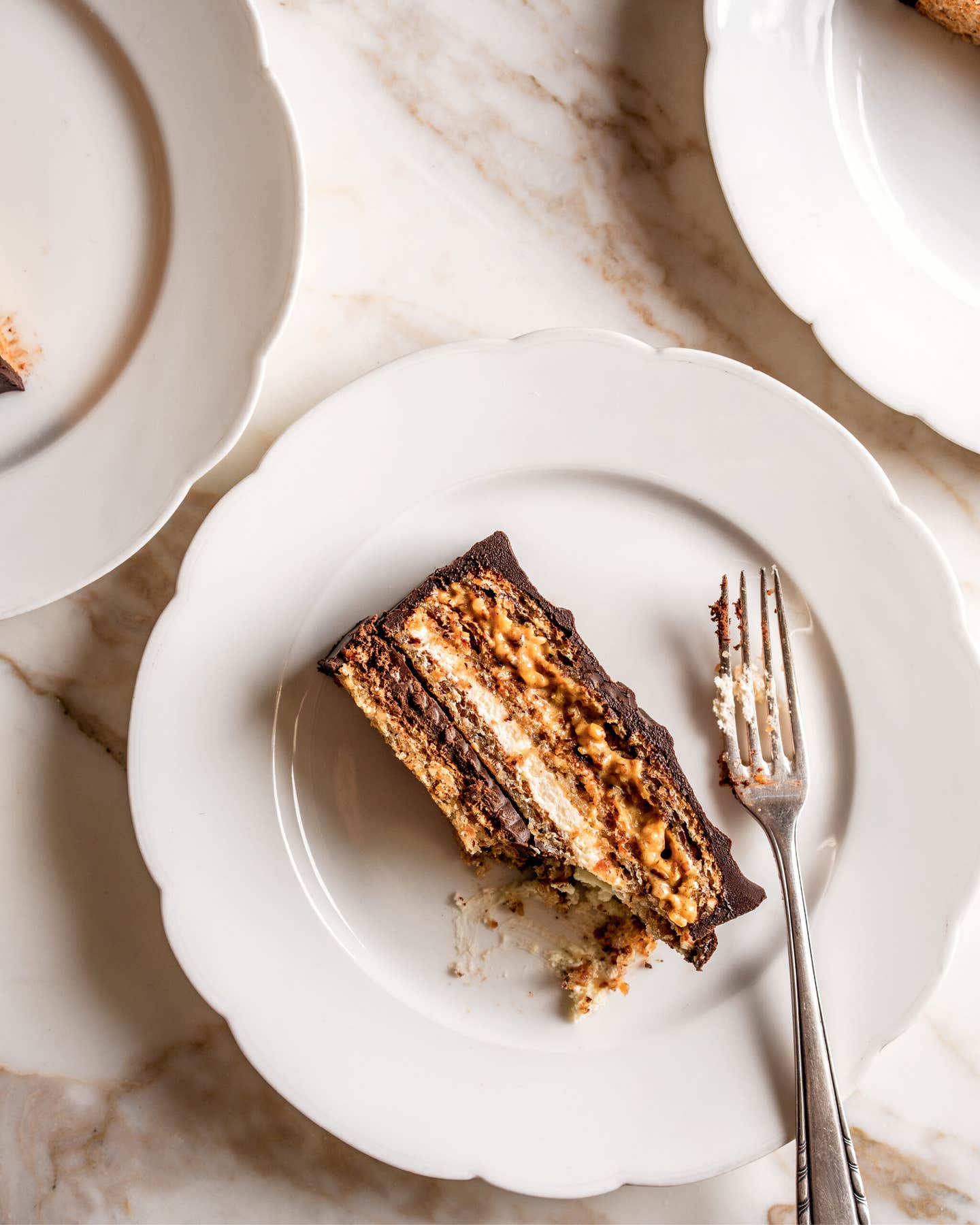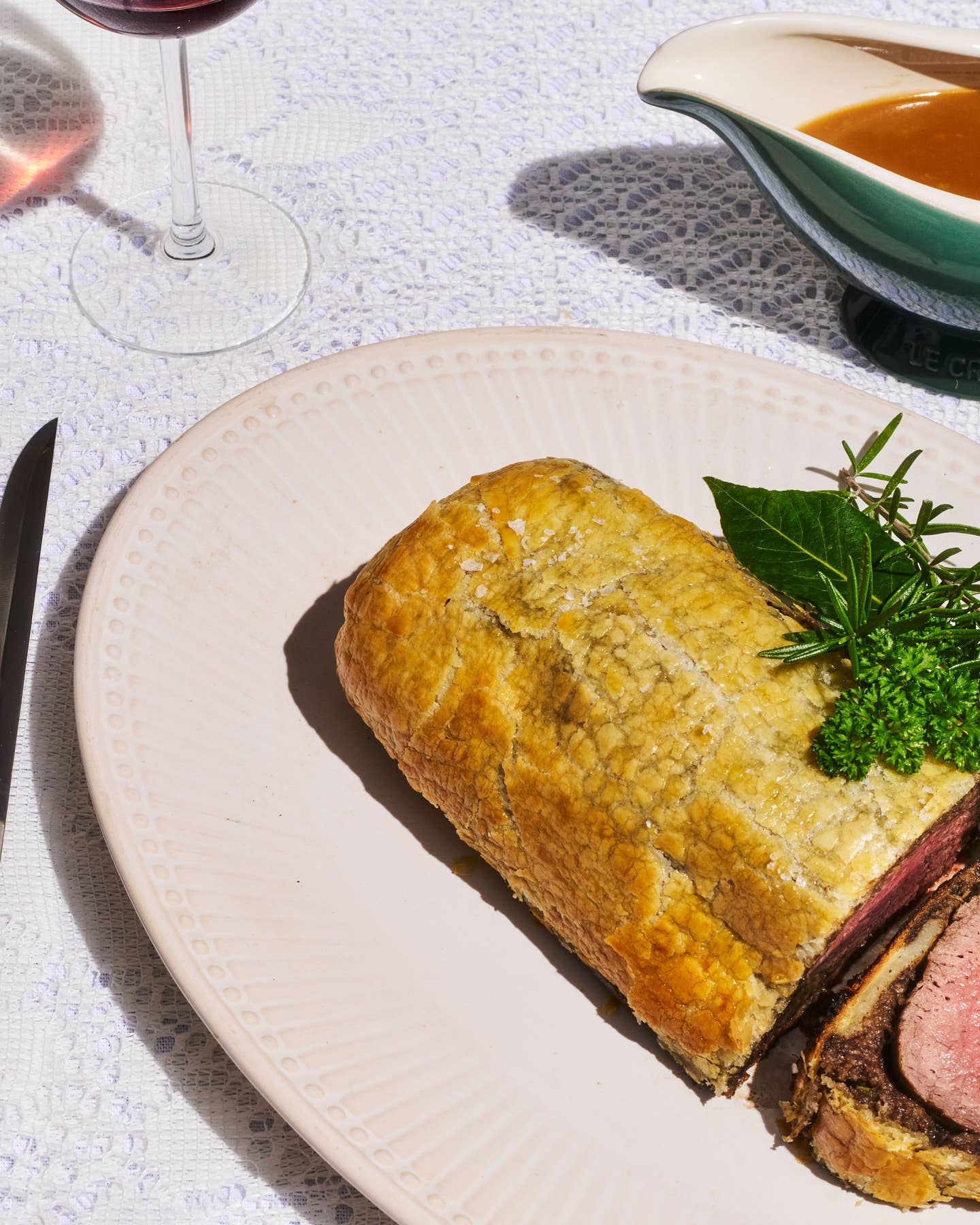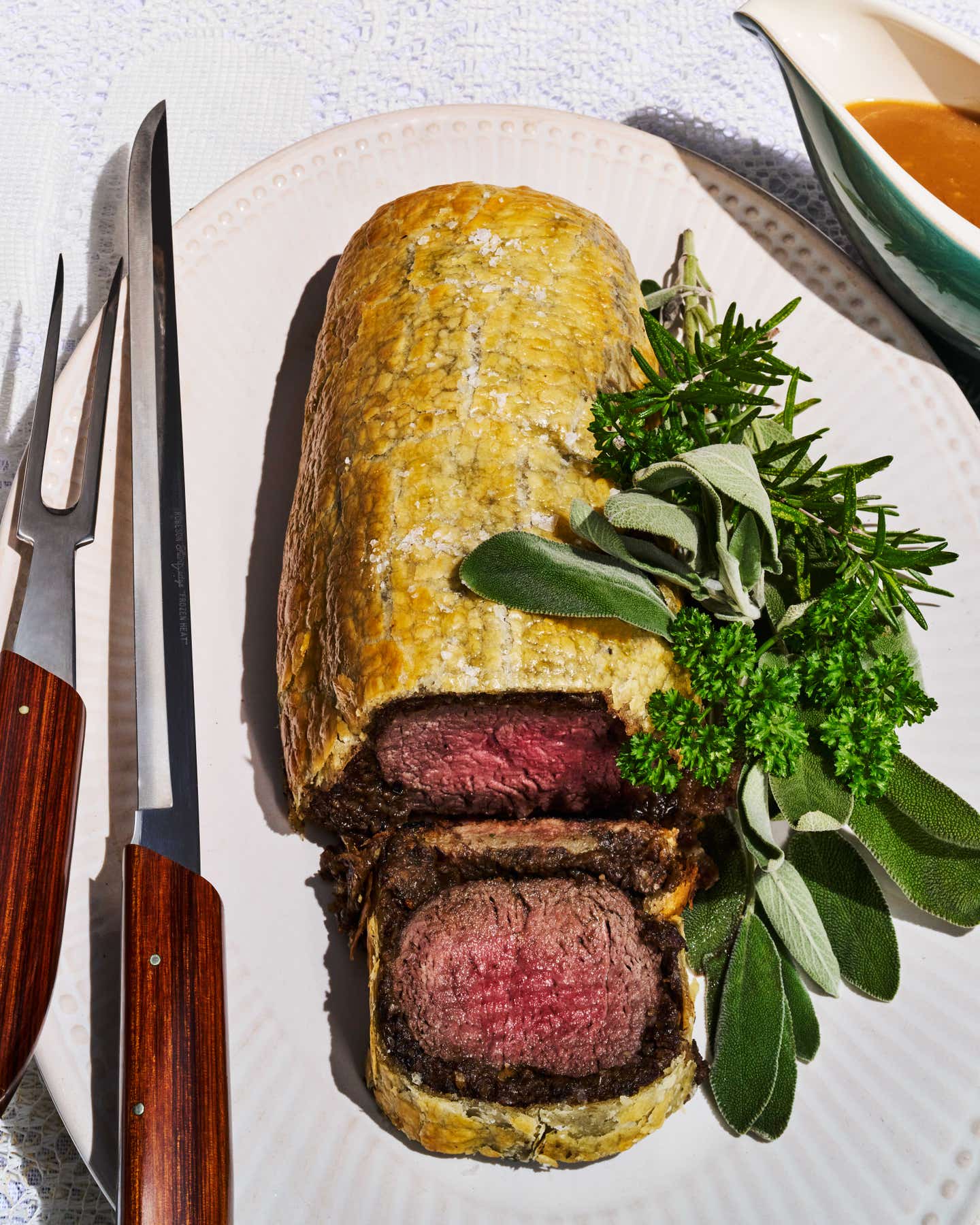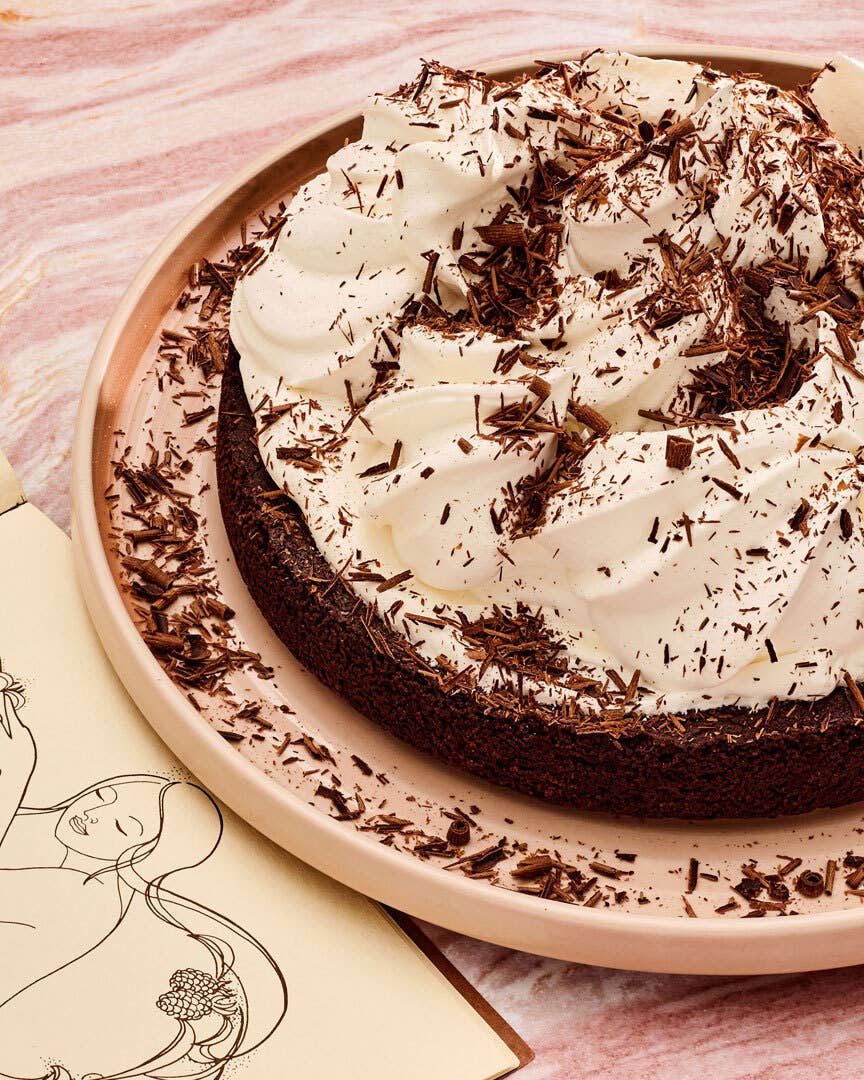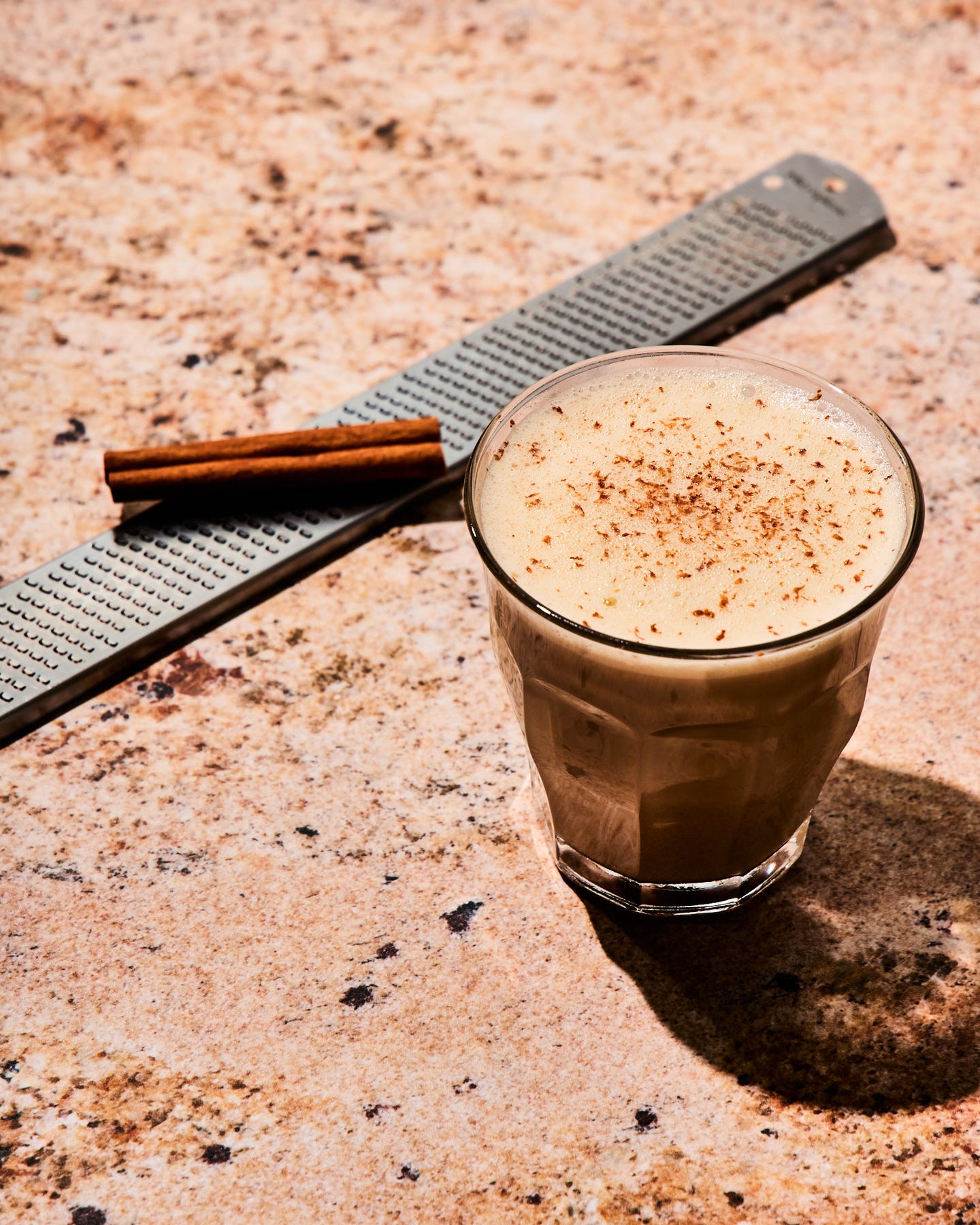
Who Really Invented the Reuben?
So the family lore goes, Elizabeth Weil’s grandfather conceived of the iconic sandwich in Omaha, Nebraska in the 1920s. But history is a hot mess on rye with a side order of counter-theories and accusations

We all need stories in order to live. A cliché, yes, but true for writers, and a few years ago I decided to tell my family's best one: My grandfather invented the Reuben sandwich. To be honest, I'd been avoiding the inevitable throughout my young adult life, more focused on defining my future than examining my past. Plus, I had sauerkraut issues, having grown up in suburban New England in the 1970s, pre-fermentation boom. But just 500 words, not a big deal, no definitive claim. On the back page of the New York Times Magazine, I laid out the basics: My great-grandfather started a chain of hotels along the railroad southwest from Chicago. He trained each of his four sons in a hospitality skill, sending my grandfather to École Hôtelière in Lausanne, Switzerland where he learned to cook. In the 1920s, my great-grandfather's friends in Omaha, Nebraska, began gathering to play poker at the Blackstone Hotel. Inevitably the men grew hungry and called down to my grandfather, who oversaw the hotel's kitchen, for snacks. For Reuben Kulakofsky, one of the players, my grandfather created a sandwich: corned beef, Swiss cheese, sauerkraut, and Russian dressing, pressed hot on rye bread. Reuben loved it! Everyone loved it! The sandwich went on all the hotel menus. In 1956, a waitress entered the Reuben in the National Restaurant Association's National Sandwich Idea Contest. It won! Now you can buy Reuben-flavored potato chips. God bless America!
As expected, upon publication, I did receive a few e-mails from the Kulakofsky clan, laying out their family's claim. The Kulakofskys have long contended that my grandfather, whose name was Bernard Schimmel, just delivered a deli platter to the poker players and that Reuben made his sandwich himself. The movie Quiz Show, directed by Robert Redford, did include the question "Who invented the Reuben sandwich?" and the answer: "Reuben Kay." (I know.) But this is a well-established controversy and basically an in-house fight. What's more, the Reuben is pressed. Did the poker room include a panini maker? Make of that what you will.

Then Andrew Smith, a food historian and the author of 24 books—including Pure Ketchup: A History of America’s National Condiment and what at the time was the forthcoming New York City: A Food Biography—sent a grenade of a letter to the New York Times which my editors were kind enough to share with me:
“Elizabeth Weil's ‘My Grandfather Invented the Reuben Sandwich. Right?’ tells a nice story about her grandfather inventing the Reuben sandwich in Omaha, Nebraska. It is a nice story, but the correct answer to the question is, ‘Wrong.’”
He forwarded the theory that the sandwich was not invented at my family’s hotel in Omaha but instead by Arnold Reuben at his eponymous sandwich shop on East 58th Street, in New York City. In the early 20th century, celebrities often ate at Reuben’s deli after the theater. “Around 1914,” Smith wrote, Arnold Reuben “came up with the ‘Annette Seelos Special’ for one of Charlie Chaplin’s leading ladies. It consisted of ‘ham, cheese, turkey, coleslaw, and dressing.’” Smith also cited a 1941 cookbook, Menu Making for Professionals in Quantity Cookery, which included a Reuben made of “Rye Bread, Switzerland Cheese, Sliced Corn Beef, Sauerkraut, Dressing.” The author of that cookbook lived in New York. Ergo, Smith reasoned (if you can call it that), “The Reuben sandwich is a New York invention; it’s time to put the Nebraska origin myth to bed.”
What? Is ham, cheese, turkey, coleslaw, and dressing a Reuben? I don’t think so. Was coq au vin invented in Cambridge, Massachusetts, where Julia Child lived when she wrote Mastering the Art of French Cooking? It was not. Still, I’m conflict-avoidant, so I wrote Smith back, soft-pedaling, “Thanks for your note.…”
But he did not let it go. Within hours, Smith escalated, explaining (though he didn't need to) that he was “a pedantic culinary historian” who put his trust in primary sources, and if I had “primary sources, such as any menu with ‘Reuben sandwich’ that lists the ingredients before 1941,” he'd love to see them and retract his letter. Without such documentation, he was calling it for New York.
I forwarded all this along to my husband, Dan. He's not from a food family. He's from an Irish storyteller family, but long ago my parents ordered him a foie gras torchon at Gary Danko, in San Francisco, and inducted him into the world of food. He now possesses the mania of the converted. Dan butchers whole lambs at home on our kitchen island. He makes his own veal demi-glace. Our kitchen table is our friends' favorite restaurant. He is so much more devoted to cooking than any of my cousins that my mother and her sisters decided that Dan, a goy-in-law, should inherit Grandfather's knife roll. It also bears mentioning that Dan has an unused Ph.D., and thus is happy to research arcana. He's also been known to enjoy a fight from time to time. He recognized Smith's type immediately—too wound up for his own good, the kind Dan delighted in tormenting when, say, such a man zoomed up and started tailgating his truck. His preferred method of combat, however, was not to drag race. It was to turn on his blinker—flicka flicka flicka—and linger in the lane, tapping the brakes.
Online, Dan found a reference to a 1937 Reuben and set about locating the menu.
Smith, meanwhile, wrote back to say he'd done some more research and while he did concede that the Annette Seelos Special was not a Reuben sandwich per se, Reuben's restaurant did use all the Reuben components (rye bread, Swiss cheese, corned beef, and sauerkraut) in its sandwich offerings. Thus Reuben's invented the Reuben.
Smith signed off that e-mail: “Sorry.”
We had a stalemate for a few days. Or really, I should say, I tried to forget about Smith and what my neighbor began calling his Reubensanity, while Dan dug in. Dan called my aunt, who lived in Omaha, and impressed upon her how imperative it was that she dig through every box in her basement to find a pre-1941 menu. (She did not find one.) Then he called the Radisson in Lincoln, Nebraska. In the 1960s my family sold the hotels. Three out of four of the brothers' places were now shuttered. The Lincoln Radisson was the sole holdout. Sadly, there were no boxes of memorabilia in its basement. But a janitor did mention that a nice lady in town collected historical artifacts. Dan tracked her down and explained the cruel and heinous crime Smith was attempting to perpetrate on one of Nebraska's claims to fame. She scurried down to her basement and searched her boxes. She did not find a pre-1941 menu, also.
Life in my e-mail inbox became more pleasurable, at least for a time. Tom Brokaw wrote to say that his wife used to teach at an Omaha high school with Warren Buffett's wife, and while in Nebraska they considered dining on Reubens at the Blackstone Hotel, the height of haute cuisine. He even offered to ask Robert Redford, who according to Brokaw, had consumed a fair number of Reubens at Blackstone, where he got the Quiz Show "fact" that Reuben Kay invented the sandwich. What I mean to say is that beautifully, strangely, the Reuben turned into the Forrest Gump of sandwiches, a lunch-size window into American life. I learned that Michael Pollan married a Kulakofsky. A reader referred to my grandfather as "the original Oracle of Omaha." Another wrote to the New York Times that the last name of the poker player in question was spelled "Kulakofsky, not Kulakowsky." The New York Times ran a correction. Then yet another reader wrote the editor to say that the correction was wrong—"Kulakofsky" and "Kulakowsky" are both transliterations from either Polish or Russian, thus equally valid spellings. But by that point even the New York Times, which once corrected the names of My Little Pony characters, apologizing for confusing "Twilight Sparkle, the nerdy intellectual" with "Fluttershy, the kind animal lover," gave up. They let incorrect correction stand.
But Smith did not quit. After three days of silence, he wrote again:
“Most humble apologies—but I do have some late breaking info.” He'd discovered that Arnold Reuben's restaurant included on its menu a sandwich of corned beef, Swiss cheese, mustard, and coleslaw on toasted rye. With great chutzpah, he wrote, “It was called the ‘Col. Jay Flippen’ sandwich.”

The Col. Jay Flippen! With coleslaw and mustard! Are you kidding me? (N.B.: Col. Jay Flippen was an actor whose first film, of his vaudeville act, was called The Ham What Am.) In what sense was this a Reuben? And how do you prove the intellectual property of a sandwich, anyway? Or any food? Among my grandfather's other creations were butter brickle ice cream and a concoction he called Schimmel Seasoning. Schimmel Seasoning is kosher salt, black pepper, and MSG. My mother still makes it, minus the MSG. She keeps it in a shaker and calls it Schimmel Seasoning. Did anybody invent that?
Origin stories may always require some emotional generosity. Did ice-cream shop owner E. R. Hazard invent the banana split in Wilmington, Ohio? Or was it David Strickler, a 23-year-old pharmacist in Latrobe, Pennsylvania? "We think the controversy is fun"—that's the wise, official position of the sweet-shop owner in Wilmington. But Smith showed no such magnanimity. As he awaited primary documentation, he informed the New York Times that they were fools to publish my mendacious writing. "Where's the evidence? If there is no evidence, it is time to put this nice myth to bed."
But you've got to root for Omaha on this one, right? New York delis have adopted the Reuben because culturally the sandwich seems as if it should be theirs—it has a huge personality, it's loud, it man-spreads. But the Reuben is a deeply early-20th-century American Midwestern creation, a Jewish sandwich that isn't kosher, made by an assimilated Eastern European whose family left Russia, Poland, and Germany several generations before World War II. The Midwest was in its heyday then. The railroad was grand. So were my family's hotels. They had fancy dining rooms with white-gloved waiters rolling silver carts for haute French table service. The Blackstone's Cottonwood Dining Room featured a real cottonwood tree. The poker players, with a wink, called themselves the Committee. They were proud, prominent, going places—or some of them were. In the early 1950s, Reuben Kulakofsky moved to Los Angeles. My grandfather stayed in Omaha. The railroad magic faded. Nobody believes that anything inspired comes from Nebraska anymore.
Dan spent many hours on the phone with the Nebraska State Historical Society and the Douglas County Historical Society trying to uphold my family's name. He did find decent confirmation that my grandfather invented butter brickle ice cream, which nobody in my family really cares about—I'm not sure why. I spent many hours on the phone with my mother, assuring her that yes, of course, I believed the family story. No outsider could shake my concept of who we are.
In the end, Dan saved the day. His Irish heritage and storyteller pride led him to understand, far better than I did, how important it was not to let the Reuben go, how gutted and lost we'd all feel if we let our history get stolen. “New York has everything, and now they're coming for the sandwich!” Dan reminded every Nebraskan who would talk to him. The tactic worked. Within a week, the Nebraska State Historical Society unearthed a menu from the Blackstone coffee shop from 1937, offering a Reuben sandwich for 35 cents, 50 cents “with chicken.” The Douglas County Historical Society found a 1934 menu from the Blackstone's main dining room offering a Reuben for 40 cents. Smith conceded—“Many, many thanks!” he wrote. “These are the earliest references for a specific ‘Reuben sandwich,’ and they do indeed support your grandfather's claim to naming a sandwich!”—though not without noting that he found the chicken option “worrisome.” But that's his problem. We've all got only so many stories, and never any new ones about our pasts. I'm sticking to mine.
Make the Schimmel Reuben at Home

Keep Reading
Continue to Next Story


